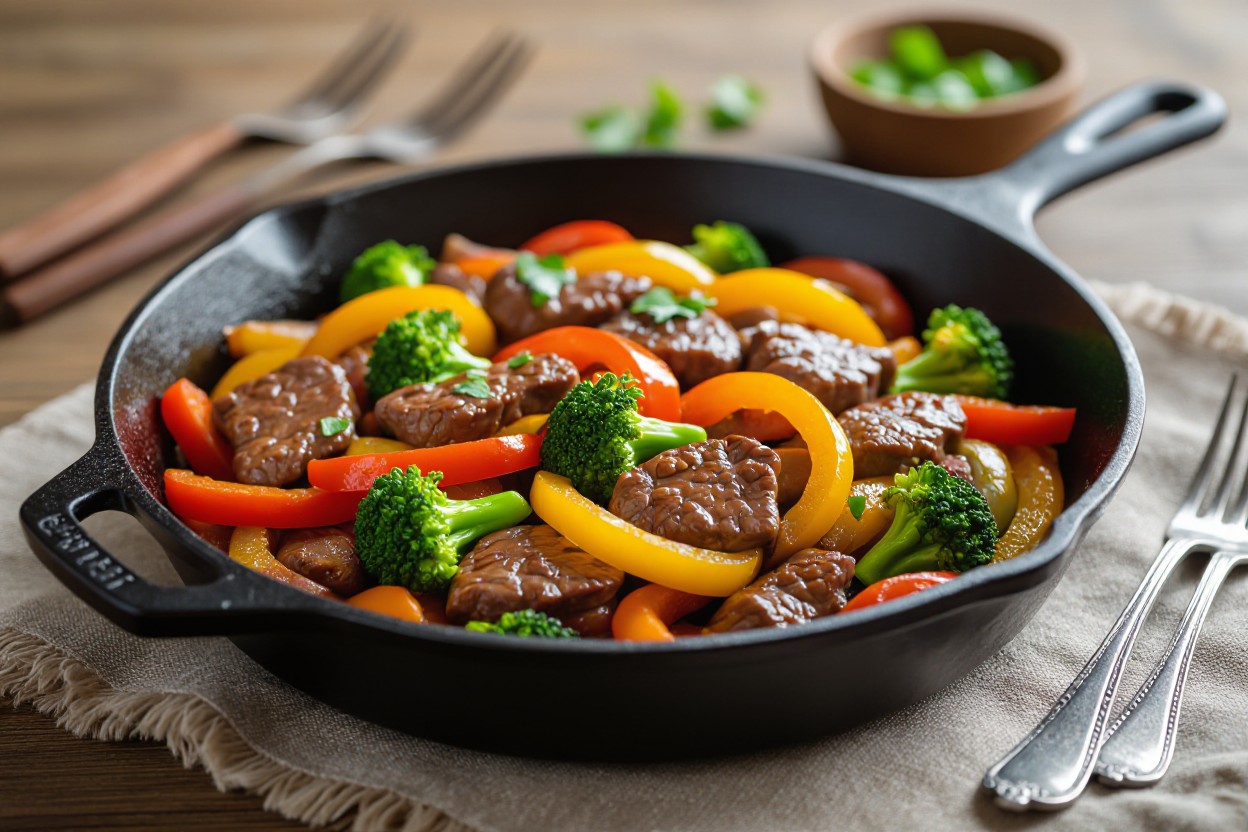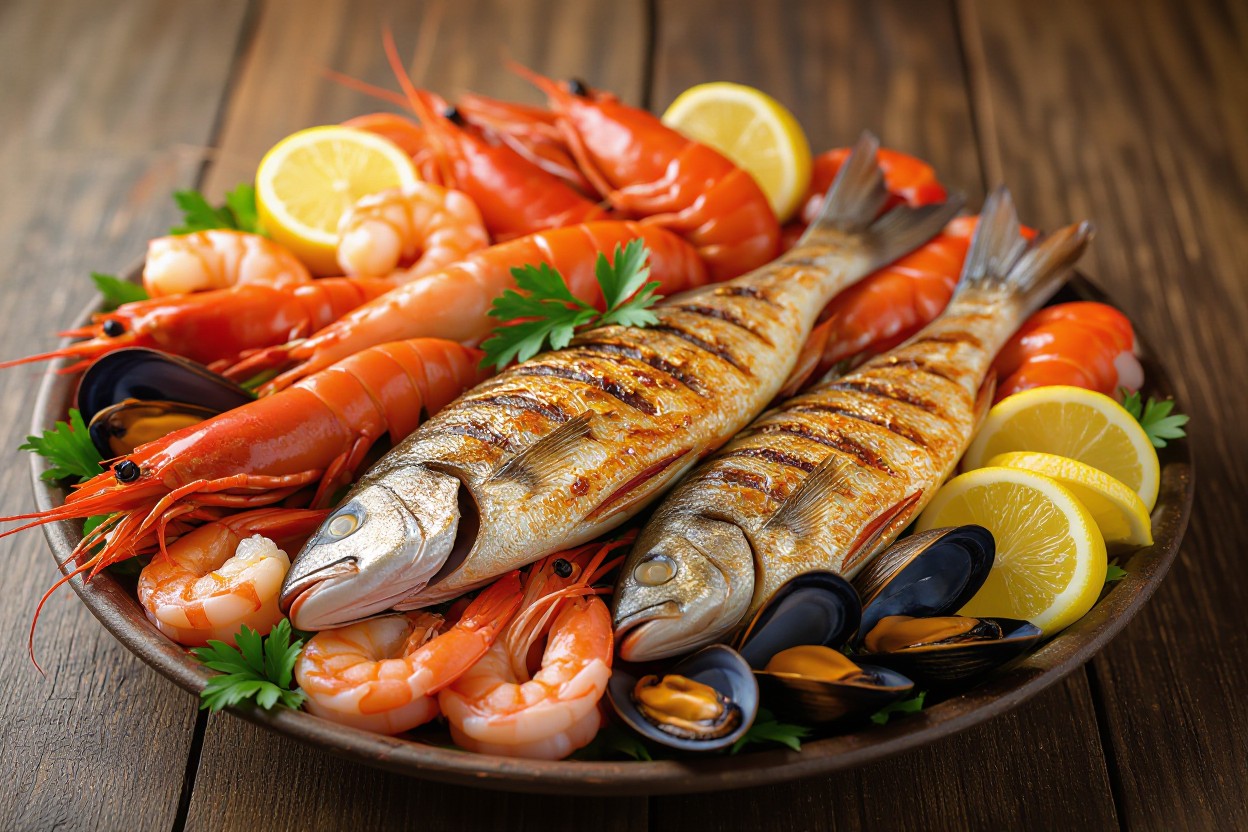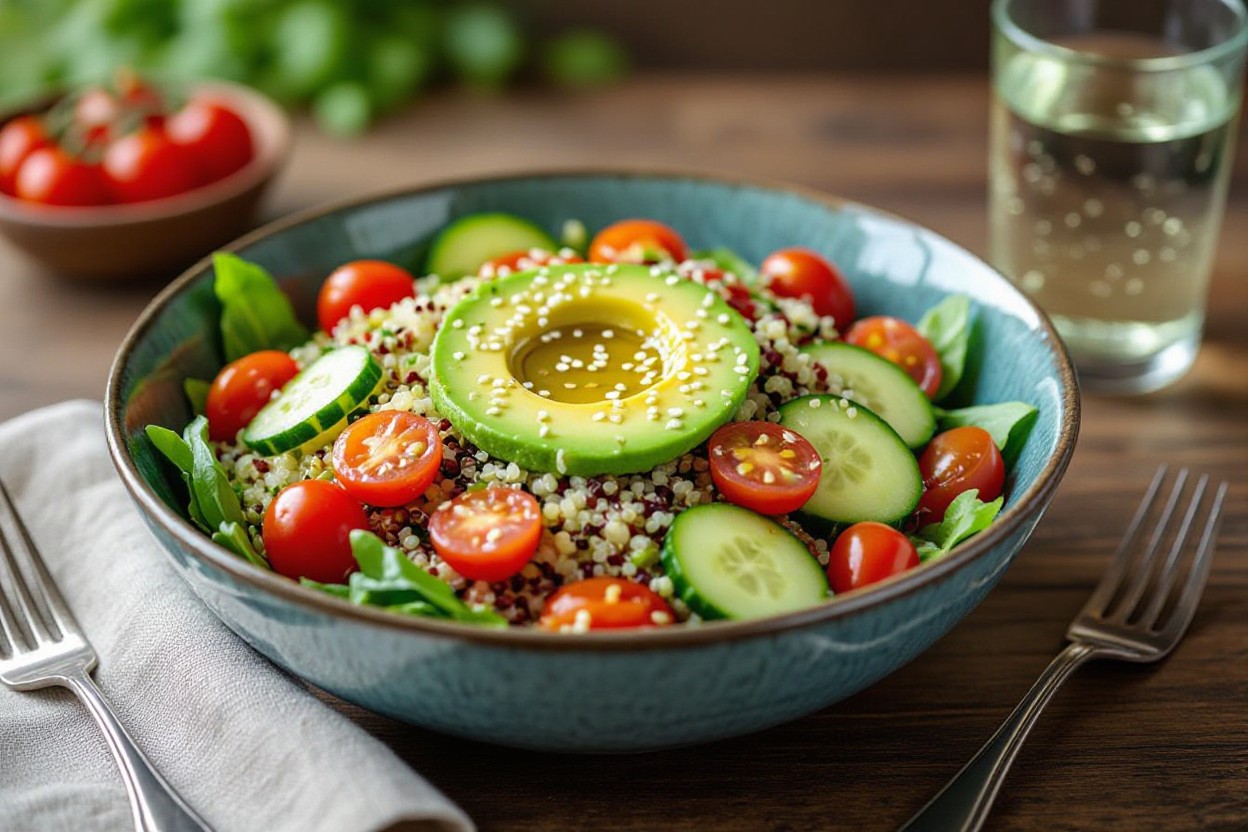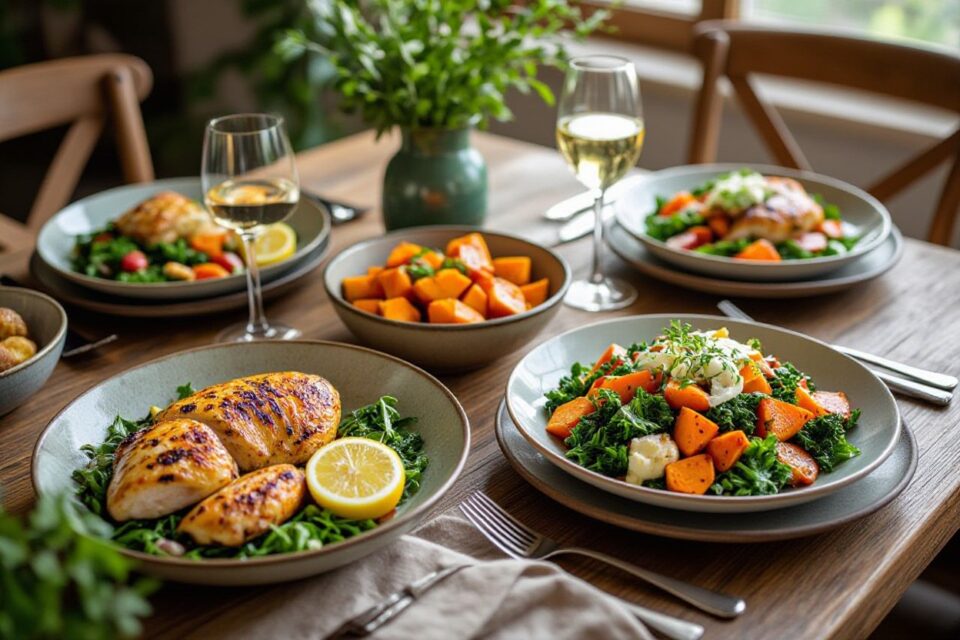Healthy eating is not merely a trend but a profound way to enhance your body’s functionality and longevity. When you embrace the Whole 30 program, you begin on a journey that eliminates processed foods and prioritizes natural ingredients. Your dinner choices become a fascinating experiment in nutrient-rich meals, fueling your mind and body efficiently. This list of Whole 30 healthy recipes is designed to guide you through delicious and compliant dishes, proving that nutritious eating can be both stimulating and satisfying. Dive in and transform your dinners into moments of intellectual and physical nourishment.
Elevating Everyday Proteins: Whole 30 Chicken Dishes
You often turn to chicken as a staple protein, but with the Whole 30 approach, you’re invited to explore how this versatile ingredient can be transformed beyond the ordinary. By focusing on fresh herbs, spices, and nutrient-rich sides, you elevate the simple chicken to a meal that fuels your body and pleases your palate. Embrace combinations that balance flavor with Whole 30 compliance, ensuring every bite supports your health and culinary curiosity.
Lemon Herb Grilled Chicken with Asparagus
This dish showcases chicken marinated in a vibrant blend of lemon, garlic, and aromatic herbs, then grilled to perfection. The bright citrus tang pairs beautifully with tender asparagus, adding a fresh, crisp contrast. As you savor this meal, you benefit from Whole 30-approved ingredients that are both nourishing and energizing, supporting your dietary goals with each delicious mouthful.
Spicy Chicken and Cauliflower Stir-Fry
In this fiery stir-fry, you combine succulent chicken pieces with crisp cauliflower florets, enlivened by a medley of bold spices that awaken your senses. The dish is a testament to how Whole 30 meals can be intensely flavorful yet free from processed additives. Every bite delivers protein and vegetables in harmony, igniting your metabolism and satisfying your appetite without compromise.
Delving deeper into the Spicy Chicken and Cauliflower Stir-Fry, you’ll find that the balance of heat and texture is carefully orchestrated to keep your palate engaged while maintaining Whole 30 integrity. The choice of spices—such as smoked paprika, cayenne, and cumin—not only amplifies flavor but also offers anti-inflammatory benefits. Cauliflower acts as a low-carb vegetable base, providing fiber to aid digestion, whereas the chicken supplies high-quality protein necessary for muscle repair and energy. Avoiding sugar-laden sauces means you’re steering clear of hidden ingredients that could disrupt your progress, ensuring your meal contributes positively to your health journey.
Plant-Based Wonders: Whole 30 Vegetarian Options
Embracing Whole 30 while being plant-based may seem challenging, yet you can still create vibrant, nutrient-dense dinners. By selecting fresh vegetables, nuts, and compliant fats, you fashion meals that energize your body and satisfy your palate. These dishes remove processed ingredients, allowing you to explore natural flavors and textures. Preparing vegetarian Whole 30 meals prompts you to rethink traditional protein sources thoughtfully, enhancing your dietary experience with a health-conscious approach.
Zucchini Noodles with Avocado Basil Pesto
You can transform ordinary zucchini into delightful noodles, twirling them with creamy avocado basil pesto. This dish avoids grains and dairy, aligning perfectly with Whole 30 parameters. The smooth avocado contributes vital healthy fats, while fresh basil infuses it with vibrant aromatic compounds. It’s a clever way to nourish yourself with wholesome ingredients, stimulating both your taste buds and your cellular regeneration processes.
Stuffed Bell Peppers with Quinoa and Black Beans
Imagine colorful bell peppers filled with a hearty mix of quinoa and black beans, enriched with spices and fresh herbs. This dish offers a fulfilling plant-based meal, packed with fiber, protein, and micronutrients that support metabolic efficiency. Although black beans are not compliant with Whole 30’s legume restriction, you can switch these for cauliflower rice to adhere strictly to the program while preserving the essence of a stuffed pepper.
Stuffed Bell Peppers with Quinoa and Black Beans are normally nutrient-rich, presenting a substantial protein source combined with fiber aiding digestion, but black beans fall outside the Whole 30 scope due to their classification as legumes which can elicit inflammation in sensitive individuals. For your Whole 30 journey, consider replacing black beans with riced cauliflower or extra vegetables to maintain the texture and volume without compromising your dietary goals. This substitution ensures your meal remains fully compliant while still delivering robust flavors and satisfying satiety. You are empowered to modify classic recipes innovatively while adhering to Whole 30’s scientific guidance on gut health and inflammation reduction.

Hearty Comfort: Whole 30 Beef and Pork Creations
When you crave warmth and nourishment, Whole 30 beef and pork dishes offer robust flavors without compromising your health goals. These hearty recipes combine tender proteins with nutrient-dense ingredients, ensuring you enjoy every bite guilt-free. By choosing quality meat and complementing it with fresh vegetables and wholesome spices, you launch on a culinary journey that satisfies both your body and mind, transforming mealtime into a science of delight.
Balsamic Glazed Meatballs atop Sweet Potato Mash
You can elevate your dinner with balsamic glazed meatballs that balance tangy sweetness and savory richness, perched on a creamy bed of sweet potato mash. This dish not only aligns with Whole 30 guidelines but also delivers complex textures and flavors. The sweet potatoes provide antioxidants and fiber, while the meatballs supply satiating protein, creating a harmonious meal designed to sustain your energy and pleasure.
Slow-Cooked Pulled Pork with Cabbage Slaw
Immerse yourself in the depth of flavor from slow-cooked pulled pork paired with crisp, vibrant cabbage slaw. This combination leverages the science of slow cooking to break down tough muscle fibers, rendering the pork exquisitely tender and juicy. The slaw adds a fresh contrast, rich in vitamins and digestive benefits, making the meal both comforting and invigorating for your digestive system.
Delving deeper, this slow-cooked pulled pork recipe harnesses the transformative power of time and low heat, which enhances nutrient absorption and reduces potential toxins formed by high-heat cooking. The cabbage slaw isn’t just a crunchy accent; it contains compounds like glucosinolates that support your body’s natural detoxification pathways. However, to maximize health benefits, ensure you select organic ingredients and balance the pork’s fat content with the fiber-rich slaw. This experimental approach to traditional comfort food invites you to explore the biochemical synergy between ingredients, nurturing your body while delighting your palate.

Seafood Sensations: Whole 30 Fish and Shellfish Recipes
When exploring the vibrant flavors of Whole 30 seafood dishes, you invite a bounty of nutrition into your diet. Fish and shellfish not only deliver vital omega-3 fatty acids but also complement your commitment to clean eating. By incorporating these recipes, you enhance your dinner routine with dishes that are both satisfying and impeccably aligned with Whole 30 principles.
Lemon Garlic Roasted Salmon with Broccoli
Imagine a dinner plate featuring succulent salmon, roasted to perfection with fresh lemon and garlic, alongside crisp broccoli. This dish strikes a balance between simplicity and nourishment, offering you a rich source of protein and antioxidants. The bright citrusy notes awaken your senses, making this recipe a delightful way to sustain your Whole 30 journey.
Coconut Shrimp with Cauliflower Rice
Coconut Shrimp paired with cauliflower rice offers you a tropical twist on a healthy dinner that is entirely Whole 30 compliant. This dish replaces traditional carb-heavy sides with the fiber-rich cauliflower rice, enhancing your meal’s nutritional profile while preserving flavor and texture. The subtle sweetness of the coconut perfectly complements the mild, nutty cauliflower base.
Coconut shrimp, fried using Whole 30-approved ingredients, provides a flavorful protein punch, while the cauliflower rice acts as a low-carb alternative that supports digestive health. Avoiding traditional batter ingredients, this recipe dismisses hidden sugars and preservatives, ensuring you stick to your dietary goals. By preparing this meal, you mitigate the risks associated with processed foods, embracing a vibrant, wholesome dinner.

Creative Salads: Whole 30 Composed Dishes
You can elevate your Whole 30 dinner routine by exploring creative salads that combine a variety of textures and flavors. These composed dishes are not only satisfyingly fresh but also nourish your body with whole ingredients, avoiding processed additives. By thoughtfully mixing vegetables, nuts, and dressings, you engage your palate and provide balanced nutrients, making your meal both enjoyable and health-supportive.
Crunchy Apple and Walnut Salad with Whole 30 Dressing
This salad brings a delightful contrast of textures—the crispness of apples and the hearty crunch of walnuts—dressed in a tangy Whole 30-approved vinaigrette. The combination delivers a refreshing and filling experience, with healthy fats and fiber that support digestion and sustained energy. It’s an excellent choice when you want something light yet satisfying for dinner.
Mediterranean Chickpea Salad with Lemon Tahini
You might find the Mediterranean Chickpea Salad with Lemon Tahini a fascinating fusion of creamy tahini and zesty lemon paired with tender, protein-rich chickpeas. This dish offers a wealth of nutrients and complex flavors, aligning perfectly with Whole 30 guidelines by focusing on fresh, unprocessed foods. The lemon tahini dressing adds vibrant acidity and healthy fats that enhance both taste and health benefits.
It’s important to note that while chickpeas are a staple in Mediterranean diets, they are typically excluded from a strict Whole 30 protocol due to their legume status. If you choose to include them, be aware of their potential to affect digestive health differently than compliant foods. However, the nutritional richness and plant-based protein chickpeas provide can be exceptionally valuable for dinner, offering sustained energy and satiety. The lemon tahini dressing complements the salad with anti-inflammatory benefits from tahini and a fresh, citrusy punch that stimulates your senses.
To wrap up
The exploration of Whole 30 healthy recipes to make for dinner reveals a universe of nutrient-rich possibilities that align with your body’s natural design. By choosing these thoughtfully prepared meals, you engage in a biochemical dialogue that supports optimal function and well-being. You harness the power of whole, unprocessed ingredients, much like the fundamental laws that govern the cosmos, to foster balance and vitality within yourself. Embrace these culinary choices, and you participate in an ongoing experiment of translating scientific understanding into daily nourishment, advancing your health with each deliberate bite.
FAQ
Q: What is the Whole30 diet plan and how does it influence dinner recipes?
A: The Whole30 diet is a 30-day nutritional reset designed to eliminate sugar, alcohol, grains, legumes, soy, and dairy from your diet to identify food sensitivities and promote healthier eating habits. Dinner recipes on Whole30 focus on whole, unprocessed foods such as vegetables, meats, seafood, and natural fats while avoiding any ingredients that don’t comply with the program’s guidelines.
Q: Can you give examples of protein sources suitable for Whole30 dinner recipes?
A: Suitable protein sources for Whole30 dinners include grass-fed beef, free-range poultry, wild-caught fish, shellfish, and eggs. These proteins are used as the main component alongside vegetables and healthy fats without added sugars or non-compliant sauces.
Q: How can I add flavor to Whole30 dinners without using non-compliant sauces or spices?
A: Flavor can be enhanced with fresh herbs like basil, cilantro, and rosemary, spices such as paprika, turmeric, and cumin, citrus juices, garlic, onions, and compliant oils like olive oil or avocado oil. Homemade spice blends using compliant ingredients are also a great way to keep meals tasty and aligned with Whole30 rules.
Q: Are there any easy Whole30 dinner recipes for beginners?
A: Yes, some beginner-friendly Whole30 dinner recipes include grilled chicken with roasted vegetables, salmon baked with lemon and dill, stir-fried shrimp with peppers and zucchini, or a simple beef and veggie skillet. These recipes usually require minimal ingredients and straightforward cooking techniques.
Q: How can I ensure my Whole30 dinners are balanced nutritionally?
A: To create balanced Whole30 dinners, include a source of protein, a variety of non-starchy vegetables, and healthy fats such as avocado or nuts. Keeping a colorful plate with different textures and flavors promotes nutrient diversity and satisfaction.
Q: Can Whole30 dinner recipes accommodate different dietary preferences like vegetarianism?
A: While the Whole30 program encourages animal-based proteins, vegetarian options can be limited since legumes and soy are not allowed. However, some vegetarians following Whole30 focus on eggs and seafood as protein sources and rely heavily on vegetables and compliant fats, but strict vegetarian Whole30 can be challenging.
Q: How do I meal prep Whole30 dinners effectively for a busy schedule?
A: Meal prepping Whole30 dinners involves cooking proteins and vegetables in batches, storing them in airtight containers, and combining them when ready to eat. Preparing versatile ingredients like roasted sweet potatoes, grilled chicken, or steamed broccoli ahead of time saves effort during the week and ensures compliance with Whole30 guidelines.
